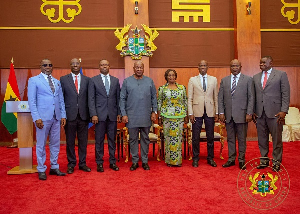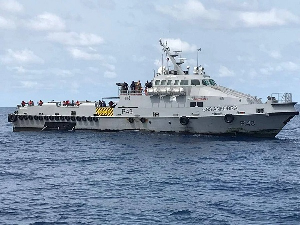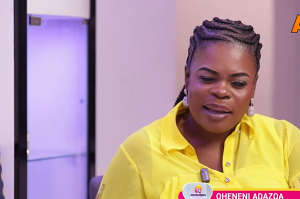There is an on going discussion in the Ghana Leadership Forum (GLU) on what to do to prevent coups and save Ghana's democracy. To prevent dictators from entrenching themselves in power, Mr. Atsu Amegashie stated that "The easiest way to do that is to manage the economy well, invest in public goods and people, and probably build bilateral military alliances with other democratic governments. etc". Mr. Amegahsie's solution is necessary but not sufficient to prevent any soldier from taking arms to overthrow a democratically elected government. Below is my full response to what the professor stated.
I respect your views but in a country where a precedent has been set, with or without corruption, etc, one cannot rule out the possibility of a putsch to change the government. Personal greediness and ambition on the part of certain elements in society, specifically within the armed forces, for political power alone, could cause any ambitious coup maker to make your suggestion on how to prevent entrenchment in political power invalid. Remember what Acheampong said in his maiden speech to Ghanaians after he seized power on January 13, 1972. Acheampong stated that the few amenities the soldiers were enjoying had been taken away from them. What a useless and flimsy excuse for overthrowing Busia's government. Yet, Acheampong enjoyed popular support at the time. It appeared that Ghanaians did not learn anything from past coups and the people who led them. If Ghanains did, there would not have been support for subsequent coups.
I bet if a coup were to be successfully staged in Ghana today, it would have some support. I am not craving or calling for one. I know from our history that in the long run, the soldiers who had been in power had been more corrupt, incompetent, undisciplined, and reckless in handling the business of the nation than the politicians. To me, the soldiers were simply a disaster on the national stage. Simply put, they had no plans for the country and didn't know what they were doing. They messed up everything they touched.
Let the blood flow, the popular call from the university students in Ghana at the time of the so called revolution by Jerry Rawlings didn't solve any of Ghana's problems. He made our problems worse. The result of this police state where there were arbitrary arrests, threats, intimidation, killings, beatings, tortures, etc, prompted many professionals and ordinary Ghanaians who could afford to leave the country to flee for their lives. Ghana is paying a big price today for the mass exodus of the professionals to other countries. There are shortage in all classses of professionals needed to build and sustain the economy in Ghana.
As long as many of our people don't judge an individual by what he or she does, especially in politics, but instead pay blind allegiance to where the individual comes from, we would continue to have our democracy under threat. Some elements in society would support a coup maker as long as the coup maker is from his/her tribe. This is very scary. I read a book on a coup and its aftermath in Ghana over the weekend. Can you believe that when the commander of a barracks wanted his men to go to Accra to quell and stop the coup makers in Accra, the RSM (Regiment sergent major) who was to be in charge of the troops refused to move the troops because he stated that he liked the coup maker who was from his tribe? When you have such people in the armed forces in Ghana whose allegiance is to a tribe and not to the nation, a coup can never be dismissed. After all, if it were to happen, all the men in uniform cannot be counted on to defend the existing government in power. This is one of the main reasons why I advocated and called for the formation of the Peoples Armed Civil Militia, the Volunteer Force. More on the Armed Civil Militia in a separate article to come.
I rest my case.















